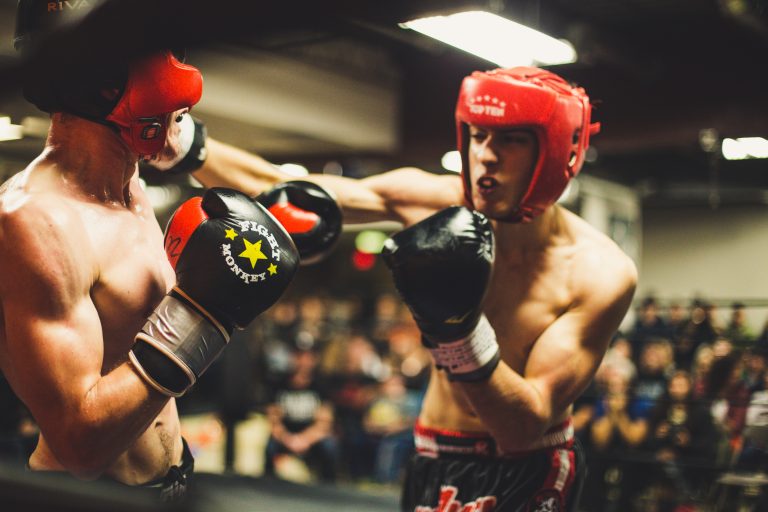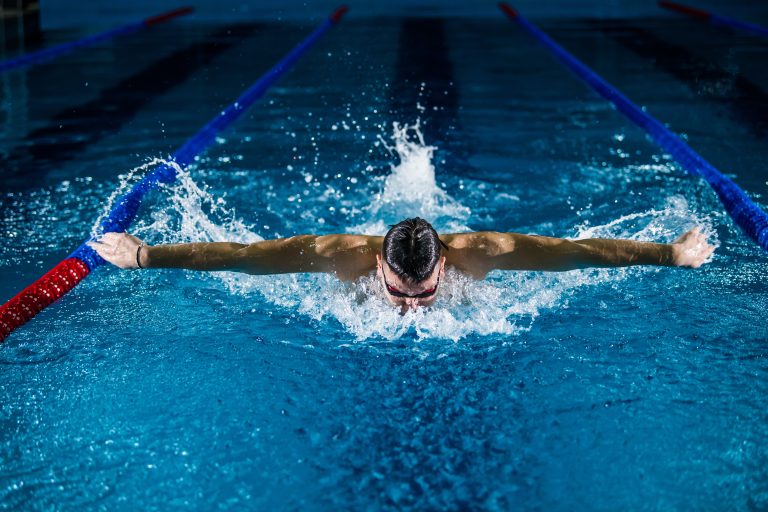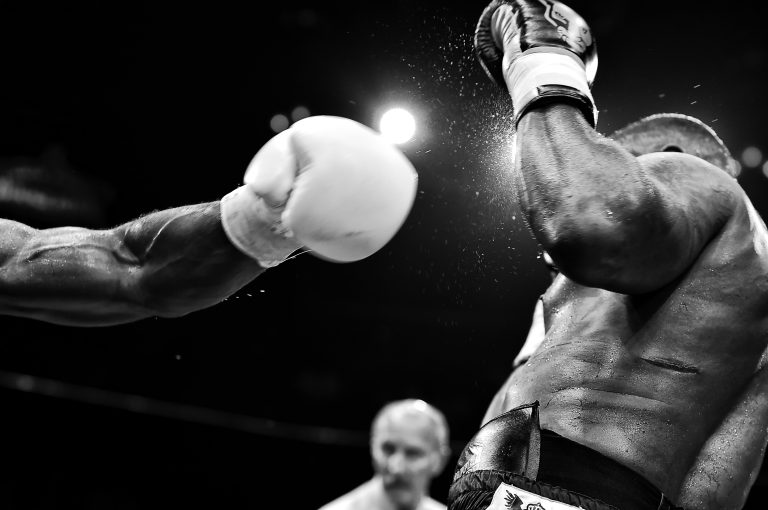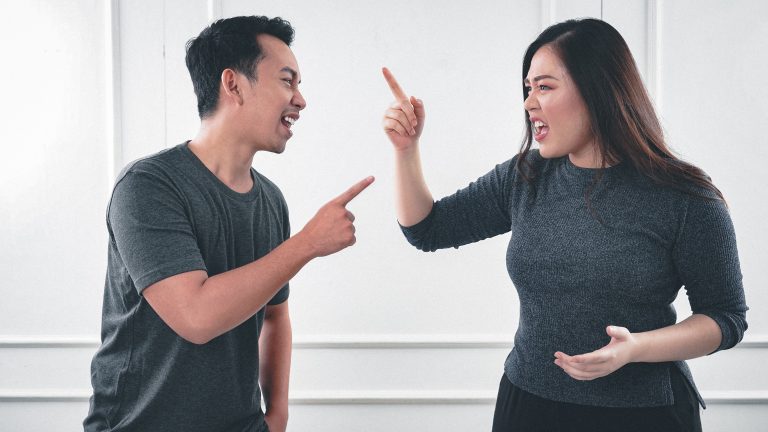What Does Karate Mean: The Complete Guide to Understanding Karate
Karate is a popular martial art that originated in Okinawa, Japan, which has taken the world by storm. Karate has become a popular practice and a staple in self-defense and physical fitness classes. It derives its name from „kara,“ which means „empty,“ and „te,“ which means „hand.“ Thus, karate is often referred to as “the way of the empty hand.” In this post, we’ll dive into the history, philosophy, and practice of karate, as well as its significance in today’s world.
The History of Karate
Karate has a rich and fascinating history that dates back to ancient Okinawa. It was developed by the indigenous Ryukyuan people, who were faced with ongoing threats of invasion from neighboring countries such as China and Japan. The Ryukyuan people developed a form of self-defense and fighting that utilized punches, kicks, knees, and elbows, which became known as „te.“ Over time, the practice evolved, with different hybrid styles emerging, and techniques from various forms of martial arts such as Chinese Kung Fu being incorporated.
It wasn’t until the late 19th century that karate emerged as a formal discipline in Okinawa, with the first karate dojo being established in 1922 by Gichin Funakoshi. Funakoshi was a karate master who created a style of karate known as Shotokan, which was characterized by its emphasis on physical strength and mental fortitude.
The Philosophy of Karate
Karate, as a martial art, is much more than just a physical exercise. It is also a discipline that teaches strong values and principles, such as perseverance, self-control, humility, and respect. The philosophy of karate is rooted in the principles of Bushido, the samurai code of honor.
Karate emphasizes the importance of discipline and a strong work ethic, which are instilled in students from a young age. The dojo, or training hall, is seen as a sacred space where students are expected to conduct themselves with the utmost respect and discipline. This training helps the students develop the ability to focus intently on a task, and to remain calm and composed under pressure.
The Practice of Karate
Karate is a physical activity that takes years of practice to master. It involves rigorous training that develops stamina, strength, flexibility, and agility. Karate training usually begins with basics, such as punches, kicks, blocks, and strikes. Students progress to more complex techniques, such as throws, joint locks, and pressure point strikes.
One of the most important aspects of karate practice is kumite, which is a sparring exercise that allows students to test their skills against each other in a safe and controlled environment. Kumite helps students develop their reflexes and situational awareness, and it is an essential part of karate training.
Karate training is also a mental exercise, as it requires students to focus intently on their movements and to develop a strong mind-body connection. This helps students develop a strong sense of discipline, focus, and mental toughness, which can be applied to all areas of their lives.
The Significance of Karate Today
Karate has become a popular practice worldwide, with millions of practitioners around the world. It is no longer limited to Japan or Okinawa, as people from all walks of life, age groups, and backgrounds participate in karate training. Karate is now recognized as a respected discipline, and it is an official sport in the Olympics.
Apart from the physical and mental benefits, karate has a practical application in today’s world, as it provides an effective means of self-defense. Karate self-defense techniques are focused on using one’s own body as a weapon to defend against an attacker. These techniques have been proven effective in real-life situations, and they can help anyone, regardless of their size or strength, to defend themselves in a dangerous situation.
What Karate Means: A Comprehensive Guide to Understanding this Martial Art
Karate is a popular Japanese martial art that has been practiced for centuries. It is known for its strong emphasis on striking techniques like punches, kicks, knee and elbow strikes, and open-hand techniques. Many people are drawn to karate because of its physical and mental benefits, but before we dive into those, let’s answer some of the most frequently asked questions about what karate means.
What Does the Word “Karate” Mean?
The word “karate” comes from two Japanese characters – “kara” meaning “empty” and “te” meaning “hand”. The term “empty hand” refers to the fact that karate practitioners primarily use their hands and feet as weapons, rather than relying on weapons like swords or knives.
Where Did Karate Originate?
Karate has its roots in the Ryukyu Kingdom, which was a group of islands located between Japan and Taiwan. It is believed that karate developed as a fusion of Chinese martial arts and traditional Okinawan fighting techniques. Over time, karate spread throughout Japan and eventually became popular in other parts of the world.
What Are the Different Styles of Karate?
There are many different styles of karate, each with its own unique techniques and training methods. Some of the most popular styles of karate include Shotokan, Goju-ryu, Shito-ryu, and Wado-ryu. Shotokan is known for its strong stances and powerful strikes, while Goju-ryu emphasizes circular movements and breathing exercises. Shito-ryu combines elements of both Shotokan and Goju-ryu, and Wado-ryu focuses on fluid, evasive movements.
What Are the Health Benefits of Practicing Karate?
In addition to the self-defense benefits, karate can also have a positive impact on your physical and mental health. Regular practice can improve your cardiovascular health, increase your strength and flexibility, and help you maintain a healthy weight. Karate can also boost your confidence, reduce stress and anxiety, and improve your focus and concentration.
Is Karate Suitable for All Ages?
Yes, karate can be practiced by people of all ages and fitness levels. Many martial arts schools offer classes that are specifically designed for children, adults, and seniors. It’s important to choose a class that is appropriate for your age and skill level, and to consult with your doctor before starting any new exercise program.
What Should I Expect from a Karate Class?
In a typical karate class, you can expect to start with a warm-up, including stretches and calisthenics. The class will then move on to a variety of exercises, including basic techniques like punches and kicks, as well as more advanced techniques like throws and joint locks. Most classes will also include sparring, which is a simulated combat exercise that allows students to practice their techniques with a partner.
Do I Need to Buy Special Equipment to Practice Karate?
Most martial arts schools require students to wear a uniform, which is known as a gi. The gi typically consists of a jacket and pants that are made from a lightweight, durable fabric. In addition to the gi, you may also need to purchase other gear like sparring gloves, shin guards, and a mouth guard. It’s best to check with your martial arts school to see what equipment is required.
A Step-by-Step Guide on Understanding What Karate Means
Karate is a Japanese martial art that has become increasingly popular around the world. It is a sport that involves a combination of physical and mental training, and can be practiced by people of all ages and abilities. Here is a step-by-step guide on understanding what karate means:
Step 1: Understand the History of Karate
Karate has its roots in Okinawa, Japan, where it was developed over hundreds of years by the local population. It was then exported to Japan in the early 20th century, where it became increasingly popular.
The word „karate“ itself means „empty hand“, which refers to the fact that practitioners of karate do not use any weapons in combat. Instead, they use their hands, feet, and other parts of the body to deliver strikes to their opponents.
Step 2: Learn the Techniques of Karate
Karate involves a range of different techniques that are designed to be effective in self-defense situations. These techniques include punches, kicks, knee strikes, elbow strikes, and grappling moves.
To master these techniques, it is important to practice them regularly and to receive instruction from a qualified karate instructor. This can involve attending classes at a dojo or training facility, or learning from online resources and instructional videos.
Step 3: Develop Mental Strength through Karate
In addition to physical training, karate also emphasizes the development of mental strength and resilience. This includes building qualities such as focus, determination, discipline, and self-control.
Practicing karate can help you build these qualities over time, as you learn to push yourself to new limits and to remain calm and composed in high-pressure situations. This can be beneficial not only in self-defense scenarios, but also in other areas of your life, such as work and personal relationships.
Step 4: Participate in Karate Competitions
For those who are interested in testing their skills in a competitive setting, karate competitions provide an opportunity to do so. These competitions may take place at a local, national, or international level, and can involve various forms of sparring and kata (a series of choreographed movements).
Participating in these competitions can be a rewarding experience, as it allows you to measure your skills against other practitioners of karate and to receive feedback on your technique and performance.
Step 5: Embrace the Philosophy of Karate
Beyond its physical and mental training benefits, karate also has a strong philosophical component. Many practitioners of karate embrace principles such as honesty, respect, and humility, which they seek to apply in their daily lives.
By embracing these principles, you can not only become a better practitioner of karate, but also a better person overall. This can help you lead a more fulfilling and meaningful life, and to make a positive impact on those around you.
Conclusion
In conclusion, karate is much more than a form of physical training or a combat sport. It is a rich and multifaceted practice that can help you develop your physical skills, mental strength, and philosophical outlook. By following the steps outlined in this guide, you can gain a deeper understanding of what karate means and how it can benefit you in your daily life.
Inhaltsverzeichnis






